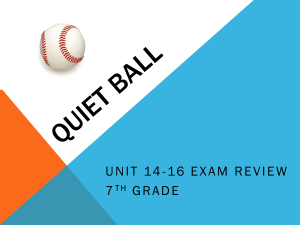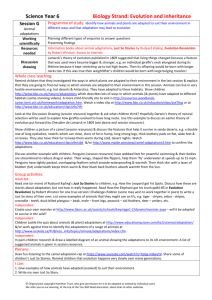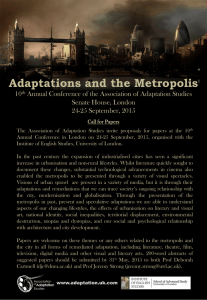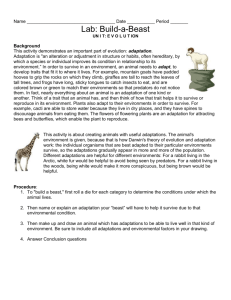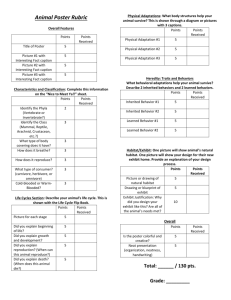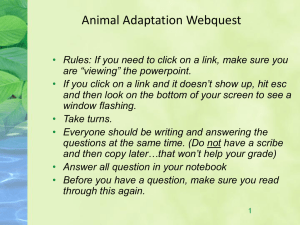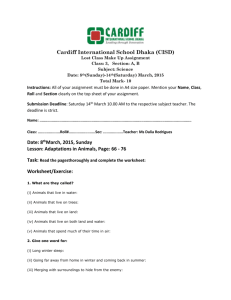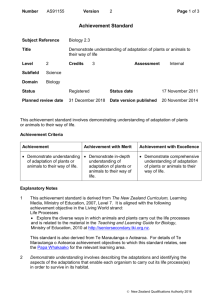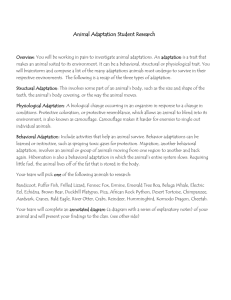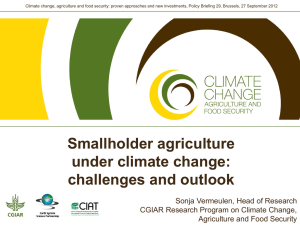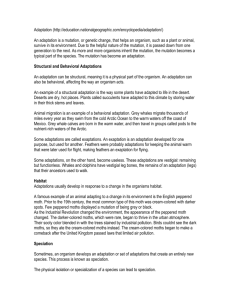habitat & adaptation
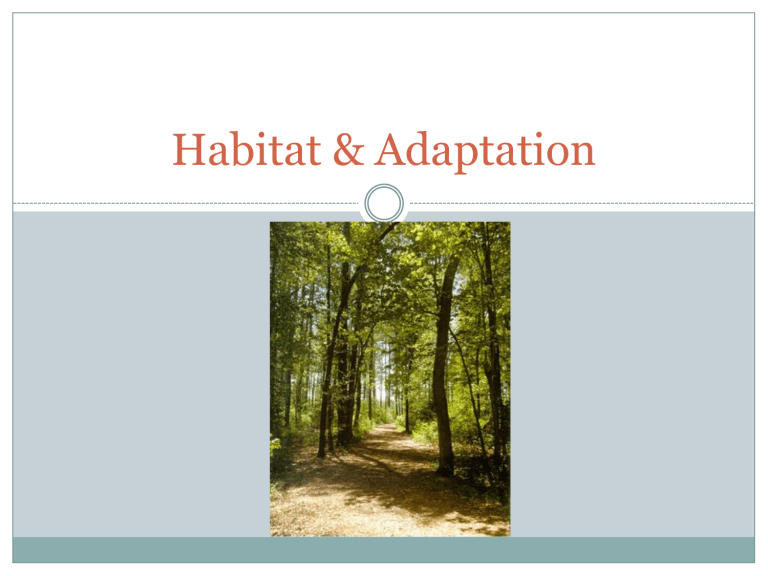
Habitat & Adaptation
Habitat
The environment in which a specific species lives in.
Example :
Canadian beavers live in the wetlands and lakes of North
America.
Why are habitats important?
Needed to meet other animals of the same species in order to reproduce
Shelter
Food and water
To be in a climate to which they are adapted to
Adaptation?
An adaptation is a way an animal's body helps it survive, or live, in its environment
Species must be adapted to their habitat
Animals depend on their physical features to help them obtain food, keep safe, build homes, withstand weather, and attract mates.
These physical features are called physical
adaptations. They makes it possible for the animal to live in a particular place and in a particular way.
Each adaptation has been produced by evolution. This means that the adaptations have developed over many generations.
Examples of the basic adaptations that help creatures survive:
shape of a bird's beak, the number of fingers, colour of the fur, the thickness or thinness of the fur, the shape of the nose or ears
What is a mimicry adaptation?
Mimicry is adapting to look like something else.
An example would be the hawkmoth as it looks just like a dead leaf, tattered and veined.
Example of Adaptations to Climate (p.225)
Red fox vs. Arctic fox
PENGUINS!
Penguins have webbed feet for powerful swimming. Their bodies are streamlined to reduce drag in water. Their wings, shaped like flippers, also help them "fly" underwater at speeds up to 15 mph.
Penguins have to keep high body temperatures to remain active. They have thick skin and lots of fat (blubber) under their skin to keep warm in cold weather.
They also huddle together with their friends to keep warm. Emperor penguins have developed a social behaviour that when it gets cold, they huddle together in groups that may comprise several thousand penguins.
The dark coloured feathers of a penguin's back surface absorb heat from the sun, so helping them to warm up too.
Adaptation and movement
Animal movement is adapted to specific habitats.
(see p.226)
Example:
Smooth green snake: has no legs (it slithers) lives in fields where plants provide shelter
Adaptation and eating
Every animal species has physical adaptations that helps it eat.
(see p.227)
Teeth and diet (see p.227)
Canine teeth (tear) carnivores
Molars (grind, crush) herbivores
Incisor (shred, cut) herbivores (bark)
Premolar (grind, crush)
Humans all four types omnivores
Beaks and diet
Short, hooked, powerful carnivorous (falcon)
Short, wide base, powerful herbivorous-granivorous (cardinal)
Short and slender Insectivorous – herbivorous (Tree swallow)
Big, long, powerful Omnivorous
(Crow)
Long and slender Nectarivorous – invertivorous (humming bird)
Plants and adapting for food
Plants will also adapt to their habitat in order to obtain food
Example:
Lichen : Algae and fungi live in symbiosis. The algae produces the food for the fungi and the fungi protects the algae from drought and temperature variations.
Adaptation and communication
Communicating through visual signs : Fireflies (light)
Communicating through
Smells : skunks (spray)
Communicating through
Sound : dolphins (whistle)
Adapting through reproduction
Flowering plants cannot move and so over millions of years they have adapted with the aid of insects that carry the pollen (Honey bees)
P.231
Questions 1 to 5
In class work!
In groups of 3 you will:
Create a movie trailer or commercial promoting an insect or bug of your choice: (min. 1 min 45 sec /max. 3 minutes)
Video must make reference to the terminology/material seen in class on insects/bugs/habitat/adaptation
Due October 15 th
